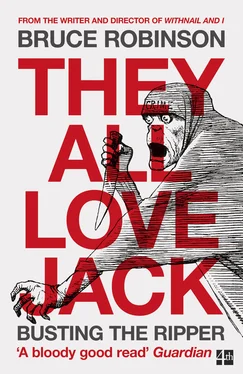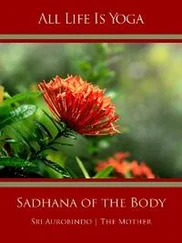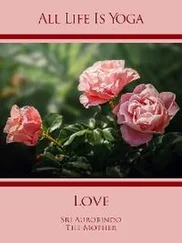Freemasonry likes to kid itself, or perhaps others, that it is apolitical, a bit like Henry Ford’s dictum concerning the colour of his cars: ‘Any politics, providing it’s Conservative.’ From its invention in the early eighteenth century, Freemasonry has been a deeply reactionary proposition, clandestinely linking the authorities of state. It isn’t necessary to read between the lines to understand this – just read the lines themselves: ‘Freemasons have always shown an unshaken devotion to the Crown’; ‘Loyalty to the King is an essential principle of Freemasonry.’85 Thus, when Labouchère told his certain truth, there might well have been a fraternal tendency to squash it and kick the Honourable Member out. To lie on behalf of the royals had become a noble requisite, a means by which one demonstrated one’s ‘loyalty’, not to the British people, but to the ruling system; and that included Prince Albert Victor, the Duke of Clarence.
‘In order to serve in the Commons and Cabinet, I had to tell eighteen lies under oath,’ wrote ex-Labour Cabinet Minister Tony Benn in 2003.86 He says he found this ‘deeply offensive’. ‘Above all,’ he continued, ‘the existence of an hereditary monarchy helps to prop up all the privilege and patronage that corrupts our society; that is why the Crown is seen as being of such importance to those that run the country – or enjoy the privileges it affords.’
One of the founders of Mr Benn’s party had a not dissimilar point of view, although his was posted over a century before. ‘In these modern days,’ wrote Keir Hardie, ‘there is nothing for a King to do except to aid in the work of hoodwinking the common people. The role assigned to him is that of leading mime in the pantomime in which the great unthinking multitude is kept amused while it is being imposed upon. A King is an anachronism, and is only kept in being as a valuable asset of the ruling class.’87 Like Mr Benn, Mr Hardie had difficulties with his sovereign oath.
Now let’s add another one. It’s the Masonic oath:
I do solemnly promise, vow, and swear, that I will always and at all times love the Brotherhood heartily and therefore will charitably hide and conceal and cover all the sins, frailties and errors of every Brother to the utmost of my power.88
It doesn’t come clearer than that, and at least half of Queen Victoria’s Parliament had sworn to this. One can either believe that these promises were useful to the state, or one can believe that they were not. For those inclined to the latter opinion, the question must surely be, what then was the purpose of them? Why take such an oath if the corporate intention was to dishonour it?
Was Bro the Duke of Clarence not in trouble? Was Bro the Earl of Euston not in the same boat? Had not these parliamentary Brethren taken their Freemasonic oath? Did they not ‘hide and conceal and cover, all the sins, frailties and errors of every Brother’ to the utmost of their power? And if not, why not? If they did not, their treachery is doubly compounded.
Courtiers Bro Sir Francis Knollys and Bro Sir Dighton Probyn had taken this oath, as had a ruling executive with supremely vested interests in making it stick.
When His Royal Highness the Prince of Wales first heard of Euston’s complicity in the Cleveland Street scandal, he wrote, ‘It is really too shocking! A married man whose hospitality I have frequently accepted!’ So shocked was he that he invited him to dinner. On 13 March 1890, Euston was a guest of His Highness at a banquet celebrating one hundred years of the Prince of Wales Freemasonic lodge.89 Some interesting names were present, including many we shall be hearing more of. They included the Chamberlain to the Queen the Earl of Lathom, and Colonel Thomas Henry Shadwell Clerke, Secretary to the English Freemasons and Masonic Secretary to Edward himself. Like Euston, Shadwell Clerke was a personal friend of my candidate, both enjoying membership of the Knights Templar ‘Encampment of the Cross of Christ’.
Bro the Prince of Wales and Bro Lathom were to be found once again at another Masonic celebration at the very heart of the English law, in Lincoln’s Inn. The evening was devoted to the consecration of a new lodge, the Chancery Bar, its membership restricted to the legal profession. The other guests included the Lord Chancellor, Bro Lord Halsbury, and the First Lord of the Admiralty, Bro Lord George Hamilton, plus a galaxy of wigs: Bro Judge Sir H. Lloyd, Bro Sir Forrest Foulton, Bro Sir Frank Lockwood QC MP, Bro Mr Staveny Hill QC MP, Bro Mr Jones QC MP, Bro E.H. Pember QC, Bro D.R. Littler QC, Bro F.A. Philbrick QC, and Bro Colonel Le Grande Starkie.
Bro the Prince of Wales, who had just been made an Honorary Member of the Chancery Bar, said in a speech of thanks: ‘I am a Mason. I am glad to think that on this occasion the great legal profession and the great Masonic Brotherhood are more intimately connected tonight than perhaps they have ever been before. (Cheers from all.)’90
Arsonists in charge of the firehose.
Which brings us to our last esteemed guest at that occasion, a man of whom it was written, ‘Englishmen are far from purists in judging the manners and life of their aristocracy. What they cannot tolerate is the sight of names which they have been accustomed to regard with respect surrounded by low and contaminating associations.’91 The guest was, of course, Bro the Earl of Euston.
The function of the Establishment was to look after the Establishment. Prying journalists could be jailed, and lippy MPs shown the door. Cleveland Street was a rank perversion of the course of justice, its puppet-masters senior Freemasons, and its puppets the Masonic herd.
‘The Mystic Tie’.
We must move on from Euston and his brothel, leaving the final comment on Cleveland Street to a journalist of the day: ‘The determination of men of rank to stand by scoundrels of their order, no matter what their crimes are, and the certainty with which they can count upon men who have merely a brevet claim to associate with them to help them out.’92
I think that is precisely put, and worth repeating. ‘The determination of men of rank to stand by scoundrels of their order, no matter what their crimes are’ is a statement of inestimable importance when trying to come to terms with the scandal of Jack the Ripper.
*See Appendix I, ‘The Parnell Frame-Up’.
Конец ознакомительного фрагмента.
Текст предоставлен ООО «ЛитРес».
Прочитайте эту книгу целиком, купив полную легальную версию на ЛитРес.
Безопасно оплатить книгу можно банковской картой Visa, MasterCard, Maestro, со счета мобильного телефона, с платежного терминала, в салоне МТС или Связной, через PayPal, WebMoney, Яндекс.Деньги, QIWI Кошелек, бонусными картами или другим удобным Вам способом.











